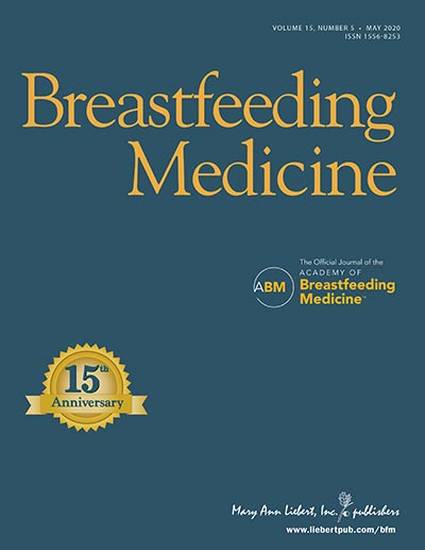
Article
Informal Milk Sharing for the Hospitalized at-Risk Infant in the Ultra-Orthodox-Haredi Jewish Community in the United States
Breastfeeding Medicine
(2020)
Abstract
The process of human milk donation and sharing for the promotion of infant health is a phenomenon of interest as it directly affects children's health and well-being. Although its prevalence is currently unknown, informal sharing of human milk is occurring across the United States. The U.S. Food and Drug Administration recommends against informal sharing of human milk. However, the Ultra-Orthodox (Haredi) Orthodox Jewish population, who strictly observes Jewish laws and often consults with rabbis before making medical decisions, is known to donate and obtain milk through informal sharing. The objective of this study was to explore the lived experience of informal donation from the perspective of Ultra-Orthodox mothers from the Northeastern region of the United States who engaged in milk sharing to support hospitalized at-risk infants. Women were interviewed by an Orthodox Jewish member of the team, using a semistructured interview guide. Informal milk sharing was regarded as a positive empowering experience. Themes which illuminate the phenomena of milk sharing include faith, mistrust of the medical establishment, a strong reliance on social connectedness, and importance of sacred cultural traditions. Health care providers need to be aware of these specific needs to provide culturally sensitive care for safer milk sharing practices in cloistered and faith-based communities.
Disciplines
Publication Date
Spring May, 2020
DOI
DOI: 10.1089/bfm.2019.0216
Citation Information
Toby Bressler, Laura Candelaria and Diane L. Spatz. "Informal Milk Sharing for the Hospitalized at-Risk Infant in the Ultra-Orthodox-Haredi Jewish Community in the United States" Breastfeeding Medicine Vol. 15 Iss. 5 (2020) p. 335 - 340 Available at: http://works.bepress.com/drlaura-candelaria/7/
